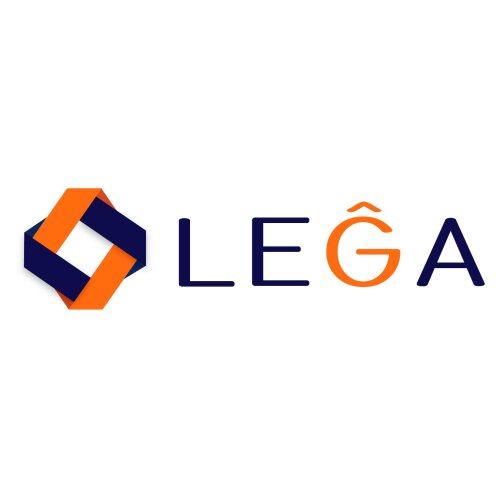Best Energy Regulatory Law Lawyers in Caracas
Share your needs with us, get contacted by law firms.
Free. Takes 2 min.
List of the best lawyers in Caracas, Venezuela
About Energy Regulatory Law in Caracas, Venezuela
Energy regulatory law in Caracas, Venezuela is a complex field that governs the generation, distribution, and commercialization of energy resources. This sector is particularly significant due to Venezuela’s vast natural resources, including oil, natural gas, and electricity. Energy laws in Caracas are shaped by various national regulations, decrees, and the oversight of state-owned enterprises such as Petróleos de Venezuela, S.A. (PDVSA) for hydrocarbons and Corporación Eléctrica Nacional (CORPOELEC) for electricity. These laws aim to ensure fair competition, environmental sustainability, effective resource management, and affordable access for the population while adhering to national policies and international commitments.
Why You May Need a Lawyer
There are several situations where having legal guidance in energy regulatory law becomes essential in Caracas:
- Entering into energy contracts, such as supply, distribution, or power purchase agreements
- Navigating licensing and permitting processes for energy projects
- Understanding regulatory compliance for companies and investors
- Addressing disputes with government bodies, utilities, or other market participants
- Dealing with expropriation, nationalization, or regulatory changes affecting private or foreign investments
- Environmental compliance and community impact issues arising from energy activities
- Involvement in renewable energy projects or non-traditional energy sources
- Advising on international transactions with Venezuelan energy entities
- Handling tariff and pricing disputes or changes in public policy
- Participating in regulatory investigations or hearings
Local Laws Overview
The legal framework for energy regulation in Caracas is driven primarily by a set of national statutes and presidential decrees, with significant government participation in the sector. Key elements include:
- The Venezuelan Constitution: Establishes that the state holds exclusive ownership of hydrocarbons and major energy sources.
- The Organic Hydrocarbons Law (Ley Orgánica de Hidrocarburos): Governs the exploration, production, refining, and transportation of oil and gas, requiring state majority control over key activities.
- The Organic Law of the Electric System and Service (Ley Orgánica del Sistema y Servicio Eléctrico): Regulates production, transmission, and distribution of electricity, with state centralization through CORPOELEC.
- Environmental Laws: Including the Environmental Organic Law and regulations on environmental impact assessments.
- Investment Laws: Foreign investment in energy is subject to limits, approvals, and state partnership requirements.
- Tariff and Subsidy Regulations: State controls on pricing and subsidies, with periodic updates that affect the business environment and end users.
Additionally, Caracas and the surrounding Distrito Capital apply these national norms locally with specific administrative procedures and points of contact for permits and compliance.
Frequently Asked Questions
What types of energy resources are regulated in Caracas, Venezuela?
Oil, natural gas, and electricity are strictly regulated, with the state overseeing exploration, production, distribution, imports, and exports.
Can foreign companies invest in Venezuelan energy projects?
Yes, but there are restrictions. Foreign investors often require joint ventures with the Venezuelan state and must comply with specific legal frameworks and approvals.
Who issues licenses or permits for energy projects in Caracas?
Government ministries, such as the Ministry of Popular Power for Petroleum and the Ministry for Electric Energy, issue permits, often involving additional oversight by CORPOELEC or PDVSA.
Are there specific laws for renewable energy in Venezuela?
While the country has laws addressing alternative energy, most regulations focus on traditional resources. However, projects in solar, wind, or biomass must still obtain permits and comply with environmental regulations.
How are energy tariffs set?
Tariffs are set by government bodies and are often subject to subsidies. Changes can occur through official decrees and are not always market-driven.
What happens if there is a regulatory breach?
Breach of regulations can lead to administrative sanctions, fines, suspension of operations, or even criminal liability, especially for environmental or safety violations.
How are disputes resolved in the energy sector?
Most disputes go through administrative processes before Venezuelan authorities. Some contracts allow for local or international arbitration, but enforceability in Venezuela may be complex.
What are the main environmental compliance requirements?
All energy projects must conduct environmental impact assessments and implement approved sustainability measures, with ongoing monitoring and reporting to authorities.
Can energy contracts be negotiated in foreign currency?
Venezuelan law generally requires contracts to be denominated in local currency, but exceptions exist, especially for foreign investment agreements, subject to government approval.
Is privatization of energy infrastructure possible?
Full privatization is currently limited by law, but certain forms of private participation, such as joint ventures, are possible under strict government regulation.
Additional Resources
If you require more information or access to support, consider these resources:
- Ministry of Popular Power for Petroleum (Ministerio del Poder Popular de Petróleo)
- Ministry for Electric Energy (Ministerio del Poder Popular para la Energía Eléctrica)
- Petróleos de Venezuela, S.A. (PDVSA)
- Corporación Eléctrica Nacional (CORPOELEC)
- Attorney General’s Office (Ministerio Público) for complaints or investigations
- Environmental authorities such as the Ministry of Ecosocialism (Ministerio de Ecosocialismo) for environmental compliance matters
- Professional associations and legal aid clinics specializing in energy law
Next Steps
If you need assistance in energy regulatory law in Caracas, consider the following steps:
- Identify the specific legal issue or question you are facing, such as a contract review, permit application, or dispute resolution.
- Gather all relevant documents, contracts, licenses, or communications related to your case.
- Contact a licensed legal professional in Venezuela with experience in energy regulatory law. Look for specialists with knowledge of both local regulations and the practical workings of government bodies.
- Prepare a list of questions to maximize your consultation, focusing on compliance requirements, risks, and possible outcomes.
- Follow recommendations for next steps, such as filing applications, responding to regulators, or pursuing negotiations, with your lawyer’s guidance for best results.
Legal matters in the energy sector can be particularly sensitive and complex, so timely, qualified legal advice is essential to protect your interests and ensure compliance with all applicable laws and regulations.
Lawzana helps you find the best lawyers and law firms in Caracas through a curated and pre-screened list of qualified legal professionals. Our platform offers rankings and detailed profiles of attorneys and law firms, allowing you to compare based on practice areas, including Energy Regulatory Law, experience, and client feedback.
Each profile includes a description of the firm's areas of practice, client reviews, team members and partners, year of establishment, spoken languages, office locations, contact information, social media presence, and any published articles or resources. Most firms on our platform speak English and are experienced in both local and international legal matters.
Get a quote from top-rated law firms in Caracas, Venezuela — quickly, securely, and without unnecessary hassle.
Disclaimer:
The information provided on this page is for general informational purposes only and does not constitute legal advice. While we strive to ensure the accuracy and relevance of the content, legal information may change over time, and interpretations of the law can vary. You should always consult with a qualified legal professional for advice specific to your situation.
We disclaim all liability for actions taken or not taken based on the content of this page. If you believe any information is incorrect or outdated, please contact us, and we will review and update it where appropriate.










